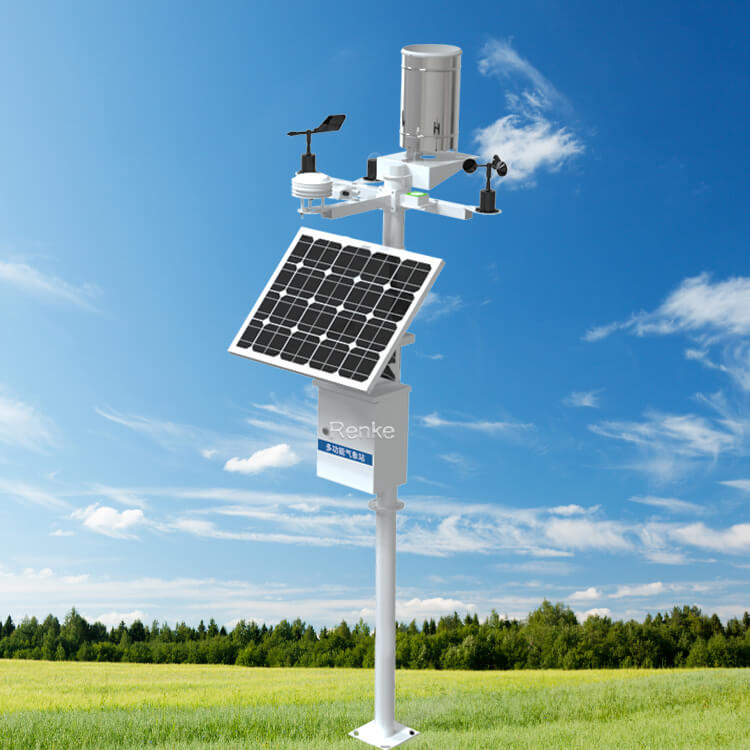Comparing the Best Weather Stations of 2024: What Sets Them Apart?
Wiki Article
Discovering the Different Sorts Of Expert Climate Stations for Accurate Data Collection
When it comes to picking the ideal weather condition station for data collection, the market offers a variety of alternatives customized to different needs and setups. Allow's check out the nuances of these specialist climate terminals to understand their unique capabilities and figure out the finest fit for particular information collection needs.Digital Weather Condition Stations
In the realm of atmospheric instrumentation, digital weather terminals stand apart as sophisticated devices for exact data collection and analysis. These innovative stations are equipped with sensing units that catch a variety of climate specifications such as temperature level, moisture, barometric pressure, wind rate, and direction. The data collected by electronic weather condition stations is sent wirelessly to a main console or a computer for real-time tracking and analysis.One of the key advantages of electronic weather condition stations is their capacity to supply high-resolution information with accuracy and integrity. This degree of precision is vital for different applications, consisting of agriculture, emergency, air travel, and study response. Electronic climate stations usually come with software application that enables customers to visualize the data in different styles like charts and charts, assisting in less complicated interpretation and decision-making.
Wireless Climate Stations
Building on the capacities of digital weather condition terminals, cordless weather stations offer improved convenience and flexibility in information transmission and tracking. By making use of cordless modern technology, these weather terminals remove the demand for difficult wired links, permitting very easy installment in different places. The wireless function allows real-time data monitoring from remote areas, providing meteorologists and weather enthusiasts with instant access to crucial info.Wireless climate terminals usually consist of sensing units that gather data on temperature, moisture, barometric stress, wind speed, and direction. These sensors wirelessly transmit the data to a central console or receiver, where it is processed and displayed for analysis. Some advanced wireless weather stations can also attach to the net, enabling individuals to access their weather data from another location through computers or smartphones.
))/3682923.json)
Prosumer Weather Terminals
What differentiates Prosumer Weather Stations from typical consumer-grade weather terminals? Prosumer Weather Stations bridge the space in between consumer-grade and professional-grade equipment, using even more advanced attributes and higher precision than typical home weather condition terminals. These stations are designed for weather lovers, amateur meteorologists, and small companies that require more precise data than what consumer models can offer.Prosumer Weather condition Stations usually consist of a bigger variety of sensors to measure additional meteorological parameters such as UV index, fallen leave moisture, and dirt dampness. They additionally often tend to have a greater degree of durability and reliability, making them ideal for lasting exterior usage in numerous ecological problems.


Industrial Climate Stations
Industrial Climate Stations, likewise called meteorological tracking systems, are specialized tools developed for exact and durable weather information collection in commercial settings. These stations are customized to meet the distinct needs of industrial operations where precise climate information is vital for safety and security, efficiency, and decision-making procedures.Industrial climate stations are furnished with innovative sensing units that can measure a large array of atmospheric parameters such as temperature, moisture, wind rate and instructions, barometric stress, and rainfall (Weather Stations). These stations are typically ruggedly developed to hold up against rough environmental conditions usually discovered in commercial settings
One trick attribute of industrial weather stations is their ability to provide real-time data monitoring and analysis. This allows industrial facilities to anticipate weather-related risks, optimize operations based on weather conditions, and ensure the safety of personnel and equipment. Additionally, industrial climate terminals can be incorporated right into existing industrial control systems for seamless information monitoring and automation.
Mobile Climate Terminals
As opposed to stationary industrial weather stations, mobile climate terminals use versatility and movement for on-the-go data collection in various ecological setups. These portable devices are made to be conveniently moved to various places, making them perfect for field research, emergency situation feedback circumstances, agriculture, construction websites, and exterior events.Portable climate stations generally include sensing units for determining criteria such as temperature level, humidity, barometric stress, wind speed, and wind instructions. Some advanced versions may additionally feature extra sensing units for checking rainfall, solar radiation, and UV degrees. In spite of their tiny size, mobile weather condition terminals are capable of giving precise and reliable information comparable to that of larger, dealt with stations.
Among the look at this now key benefits of mobile weather condition terminals is their quick implementation and convenience of setup. They can be functional within mins, permitting quick data collection and analysis. In addition, these terminals can be programmed to send real-time data wirelessly, allowing individuals to monitor and evaluate ecological problems remotely. In general, mobile climate stations are indispensable devices for professionals requiring portable, precise, and prompt weather information in diverse setups.
Conclusion
In final thought, professional weather terminals come in different types such as electronic, cordless, prosumer, industrial, and mobile. By recognizing the differences between these kinds of weather terminals, individuals can make informed choices to ensure they obtain the most dependable and specific weather condition data for their objectives. Weather condition))))Structure on the abilities my site of digital weather condition stations, cordless weather terminals provide boosted comfort and flexibility in information transmission and monitoring. Some progressed wireless climate stations can also connect to the web, allowing customers to access their weather information remotely by means of computers or mobile phones.
Prosumer Weather Stations bridge the space in between professional-grade and consumer-grade equipment, using even more sophisticated attributes and higher accuracy than regular home weather condition terminals. Weather Stations. Overall, portable climate stations are very useful tools for experts calling for portable, precise, and prompt weather info in varied settings
By comprehending the distinctions between these types of climate stations, individuals can make educated choices to ensure they get the most precise and reputable climate data for their purposes.
Report this wiki page